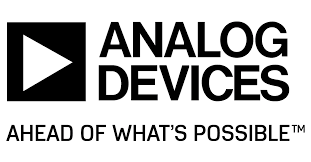
Introducing the Analog Garage
The world is embarking on a period of great technological innovation. This means that innovators themselves need a place where they can grow their ideas. Technology startups are fast becoming a growth area for semiconductor manufacturers, as they are often at the coal face of design innovation, pioneering the journey towards the fourth industrial revolution.
As part of a regular ‘Startup Launchpad’ feature, we speak to Pat O’Doherty, Vice President for the Emerging Business and Technology Group at Analog Devices about the company’s internal startup programme called Analog Garage, a corporate incubator programme to provide entrepreneurs with a path to propose, explore and scale new technologies and new business models.
The Analog Garage is a corporate incubator intended to provide external entrepreneurs and ADI intrapreneurs with a path to propose, explore, and scale new breakthrough technologies and business models. It’s called the Analog Garage for two reasons - to recognise the importance of analogue know-how in many of the applications that are instrumenting the world, and to give a nod to all the garages, basements, and other non-descript quarters that have served as home for countless beginnings in the history of technological innovation.
O’Doherty commented: “Our mission is to focus on what’s next, and to generate real innovation and results. Whether you are a startup or job seeker, we are looking for people ready to work on life-changing technologies.”
History
Despite being a large semiconductor company, much of ADI’s DNA is akin to that of a startup. Turning the clock back more than half a century to when the company began, it has always had a culture of innovation and risk-taking. Just a few years after Analog Devices went public, the module maker gambled that integrated circuits would overtake discrete components by investing in semiconductor startup Nova Devices.
This willingness to take risks would prove to be essential in sustaining growth over the next few decades in the company’s core signal conditioning and conversion markets. Analog Devices invented and improved manufacturing technologies like bipolar process and laser trim technology to help ensure the highest-quality components. At the same time, it pushed yet again in an unexplored direction, and built the first CMOS converter.
Over the years, Analog Devices would pivot again and again. The company moved into digital signal processing, which became popular as personal computers rushed to incorporate multimedia capabilities. As well, Analog Devices developed the first commercial MEMS accelerometers, which were used to make car airbags affordable and reliable. Today, ADI technology can be found in everything from factory equipment to activity trackers.
Through the Analog Garage, startups, universities, research centres, and teams of ADI employees get the support they need to solve tough problems and collaborate in a fast-paced, roll-up your sleeves, experiment-focused, and risk-tolerant environment.
The Analog Garage was started four years ago in Cambridge, Massachusetts, with about 20 engineers and moved to Boston a year ago when it outgrew its previous space. The Boston site now holds approximately 70 engineers with backgrounds in signal processing, machine learning and AI, materials scientists, system engineers, security technologists, and software and cloud developers. These are non-traditional skillsets for a typical semiconductor company.
Although the Analog Garage is headquartered in Boston, it is not all located in one place. The Analog Garage has active initiatives across the globe focused on identifying breakthrough new technologies and business models that will help build our future.
Any employee of ADI, whether they are based in India, China, Ireland, Germany, or the US can propose a new idea. A team within the Analog Garage then works with the project champions to refine their idea and, if it meets the company’s criteria, pitch it to a venture board.
From there, the board decides whether to fund it. Once funded, the project team can work on the project part-time or full-time, leaving their previous roles for the duration of the project. The projects are managed exactly like external venture capital-funded startups with angel, seed, Series A, and Series B stages with a strict focus on achieving project milestones, funding, and speed.
What is the difference between Analog Garage and R&D?
The Analog Garage is part of ADI’s Emerging Business and Technology Group, which reports to the CTO and is separately managed and located physically apart from the business units comprising the rest of the $6bn parent company. The Analog Garage focuses entirely on opportunities that are high risk, high return ventures with the potential to turn into significant revenue within five to ten years.
The R&D groups within ADI’s business units typically focus on technology that is expected to convert into product revenue within five years. However, the business units and the Analog Garage collaborate intensively on many projects that are ADI’s highest priorities.
Many of Analog Garage’s employees have PhDs in signal processing, machine learning, or materials science, and tend to come from the leading research universities around the world and a variety of deep-tech startups. They are motivated by the breadth of foundational technology possessed by ADI and the huge opportunities to create new breakthrough technology that spans sensing, signal conditioning, interpreting, connecting, and analysing real world signals.
Graduates
Graduates from Analog Garage initiatives either move into a business unit to seed a new business, which is the typical path, or they can be set up as a new business unit or spun out to grow entirely independent of ADI. This is determind by the business units and is largely based on strategic alignment and fit.
Commenting on how start-up companies and entrepreneurs can partner with corporate and non-profit incubators, he said: “We look at the universities and the incubators and the amount of innovation out there is just staggering. Added to that, the barriers to entry are beginning to disappear, and so for companies like ADI, to sit back on the laurels of our market position, established expertise, and creative engineering talent, and think that is enough, that is the death knell for any company.
“It may take several years but that is the beginning of the end. So, the Analog Garage exists to look at the next five, ten, 15 years, and what technologies and capabilities we are looking to obtain in order to be able to grow and develop, and try and figure out what we want to be beyond the scope of most of our business units. Most of our business units deal in around a five-year time horizon, which is true of most technical companies.
What we’re trying to do with the Analog Garage is to look beyond that. Not only in terms of time, but in terms of capabilities that are not adjacent to ours. Our company is very good at adding adjacent capabilities but historically we haven’t been as good at reaching out and seeing something that is beyond the clear vision of the company, and maybe a startup has something really unique and compelling.
So, Analog Garage has been created to reach out and interact with them – working on the impedance that exists between a large corporation and the startup and research community – and we’re really trying to develop win-win scenarios for ourselves and those other entities.
Ways of connecting
Analog Garage provides the strategic resources and funding for the big ideas of tomorrow, but it is through its accelerator partners that many entrepreneurs choose to reach out.
These include Alchemist Accelerator which incubates a wide range of business-to-business ideas such as enterprise, and customer development models; Greentown Labs which deal with hardware-focused entrepreneurs developing clean technology solutions for the world’s biggest energy and environmental challenges; Bolt, who specialise in pre-seed, pre-product hardware funding; and MassChallenge, an incubator in Boston, Israel, Mexico, Switzerland, and the UK helping entrepreneurs across any industry.
Connection can also be made through university programmes which are designed to nurture the translation of basic research into applied technology and educate new generations of scientists and engineers. Top university research complements internal Analog Garage activities and provides opportunities to engage in advanced technology development.
Some leading programmes that have collaborated with Analog Devices include Berkeley University of California’s Berkeley Wireless Research Center (BWRC); Stanford University’s Stanford SystemX Alliance; and Virginia Tech’s Center for Power Electronics Systems (CPES).


